Values & Vision
Preschool and Primary School
We create a joyful, respectful space where children enjoy learning together. At Nhapúpwè, children from diverse social and cultural backgrounds, with and without disabilities, share classrooms. Families who can afford it pay a solidarity fee, making it possible for a third of our students from low-income families to attend. Thanks to this approach, our school has built a strong reputation in the community, and demand is high.
In preschool, we focus on building essential skills—especially language and fine motor skills—to give children a solid foundation for future learning. Since these skills are often underdeveloped in early childhood in Mozambique, we provide early, comprehensive support through play and exploration.
In primary school, we emphasize active, cooperative learning that encourages children to explore and discover subjects on their own. Our mixed student groups reflect our belief that growing up together broadens perspectives and fosters tolerance.
Our preschool hosts up to 75 children (ages 3–6); our primary school runs six small classes (grades 1–6) with up to 25 students each.
In total, over 350 children attend our preschool and primary school today, supported by a team of 30+ staff dedicated to both the children and sharing Nhapúpwè’s educational approach.
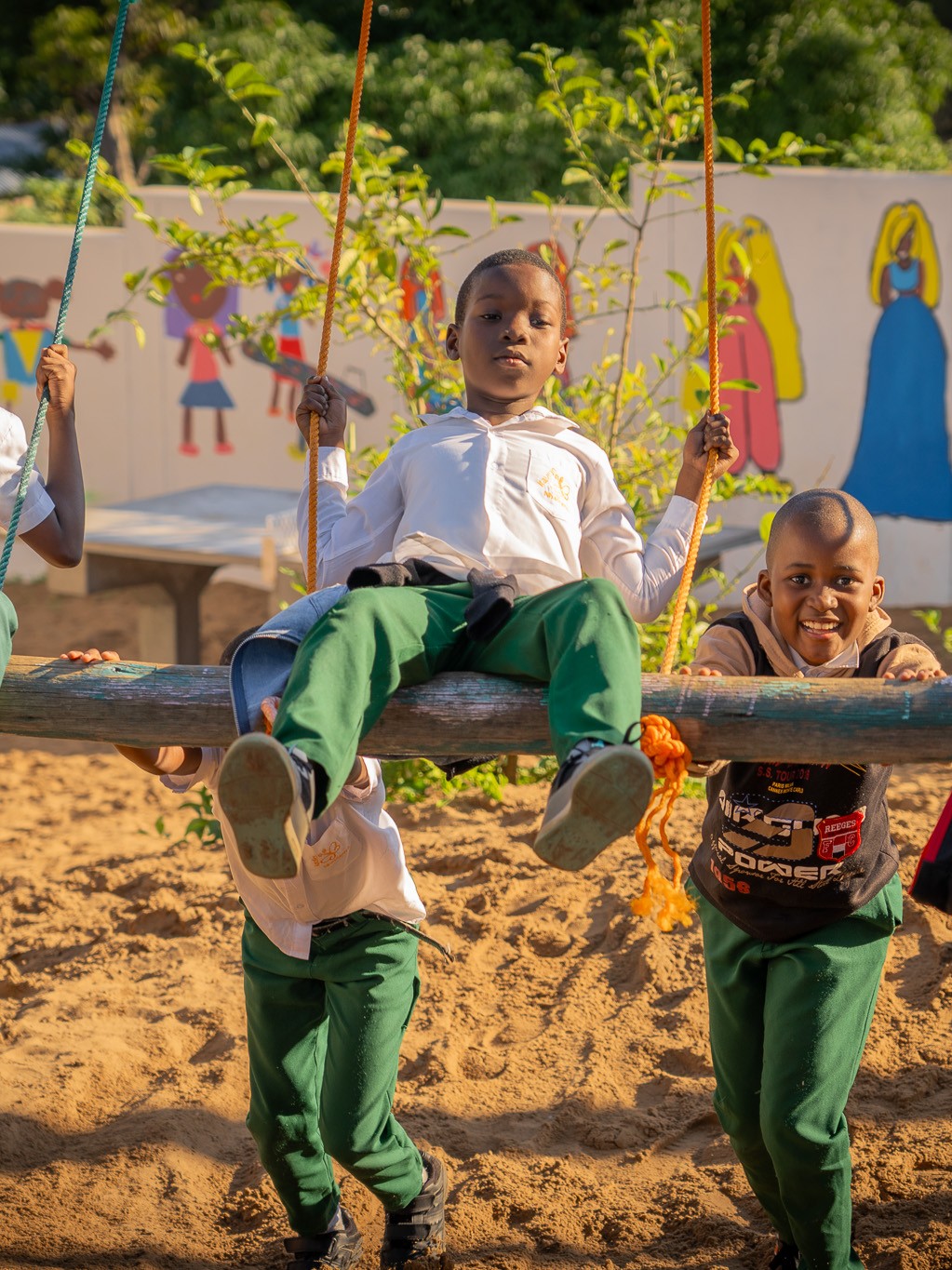
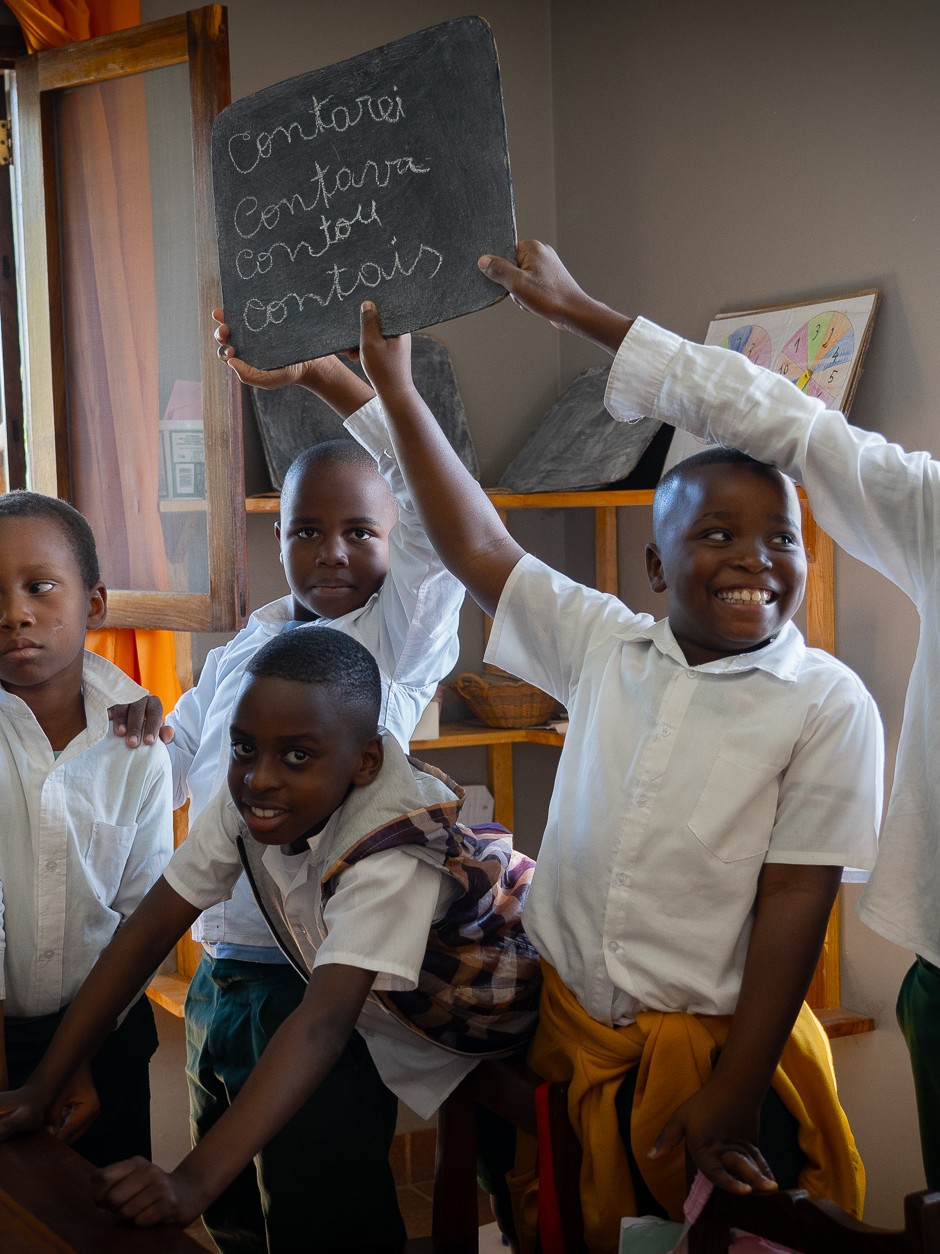
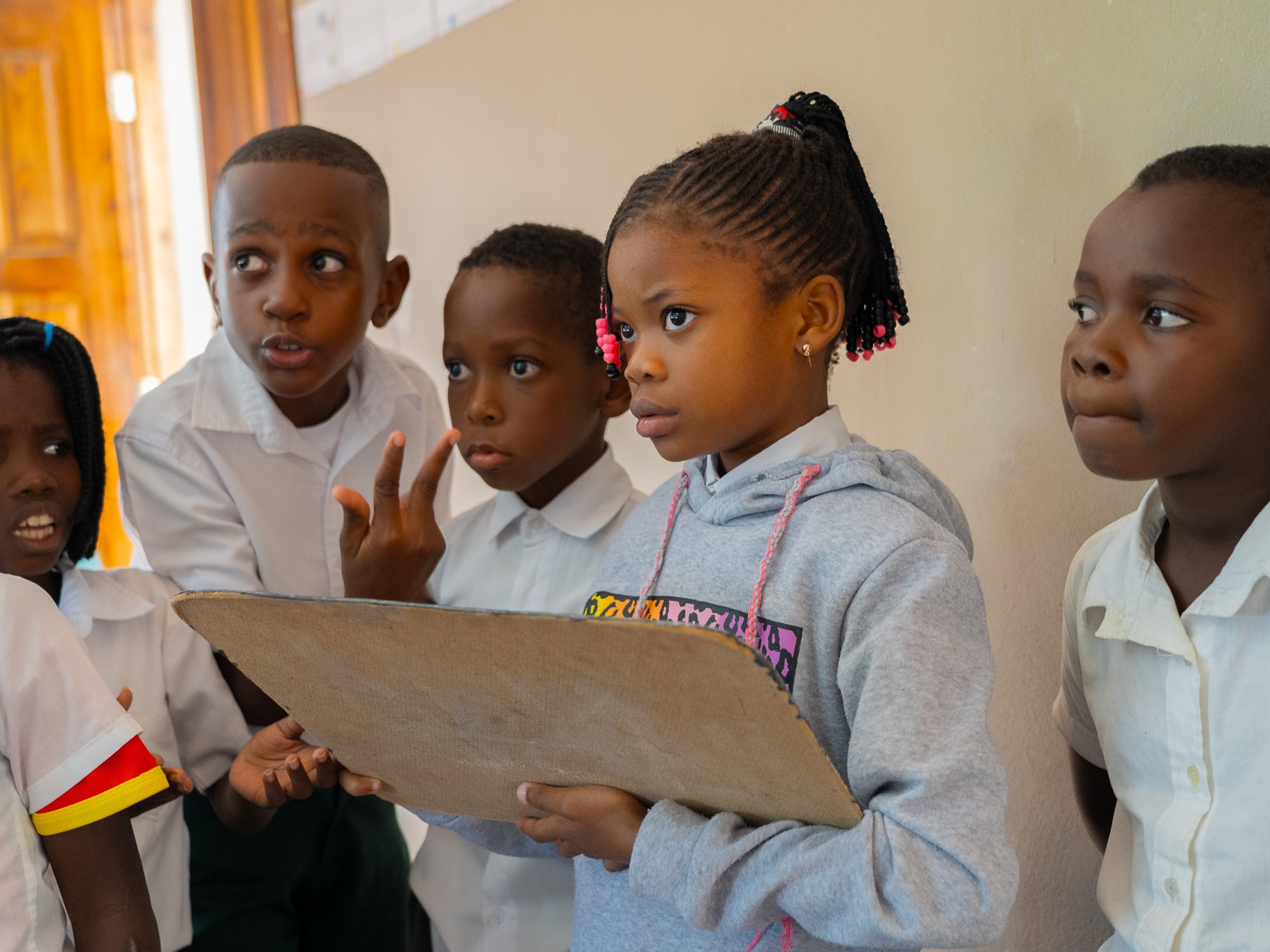
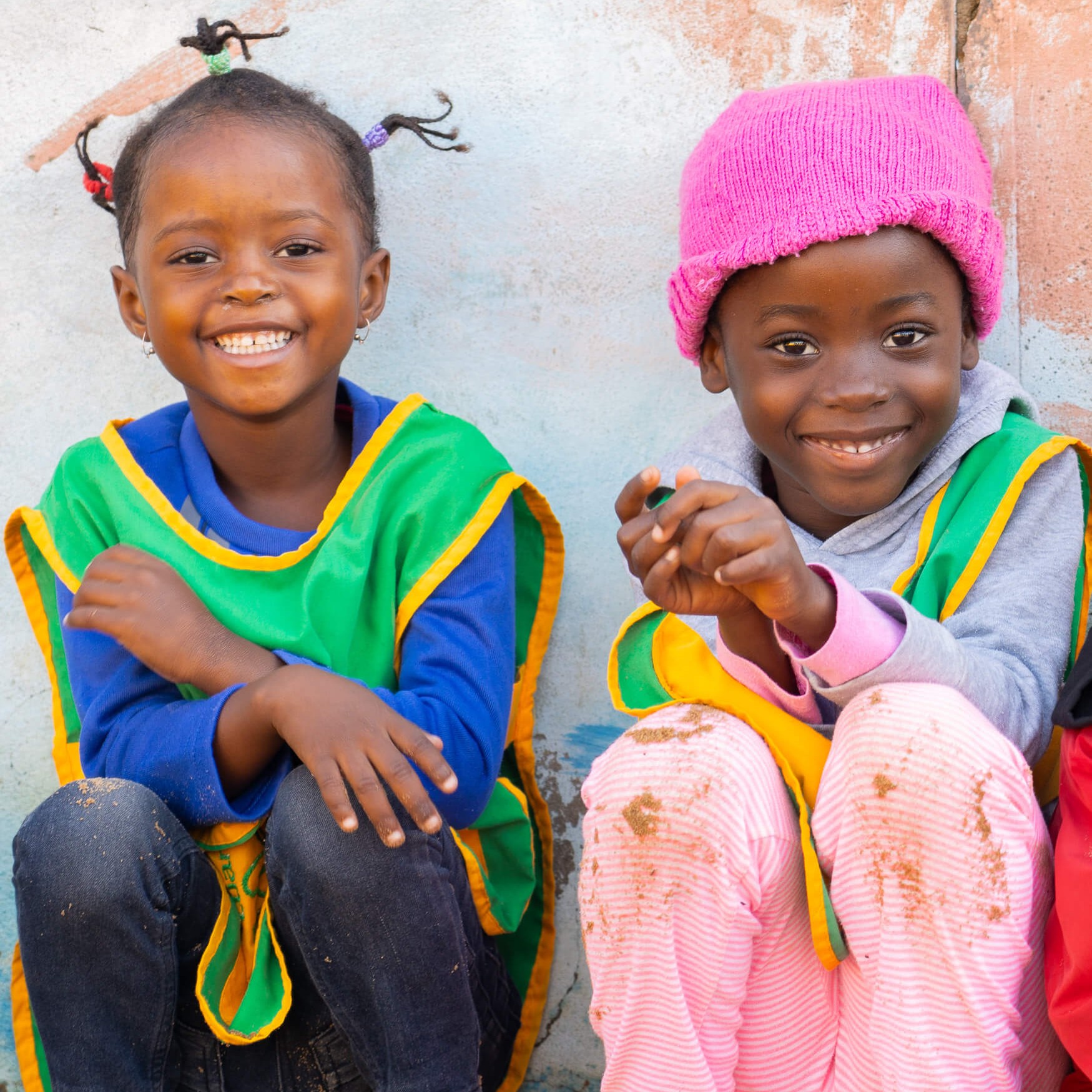
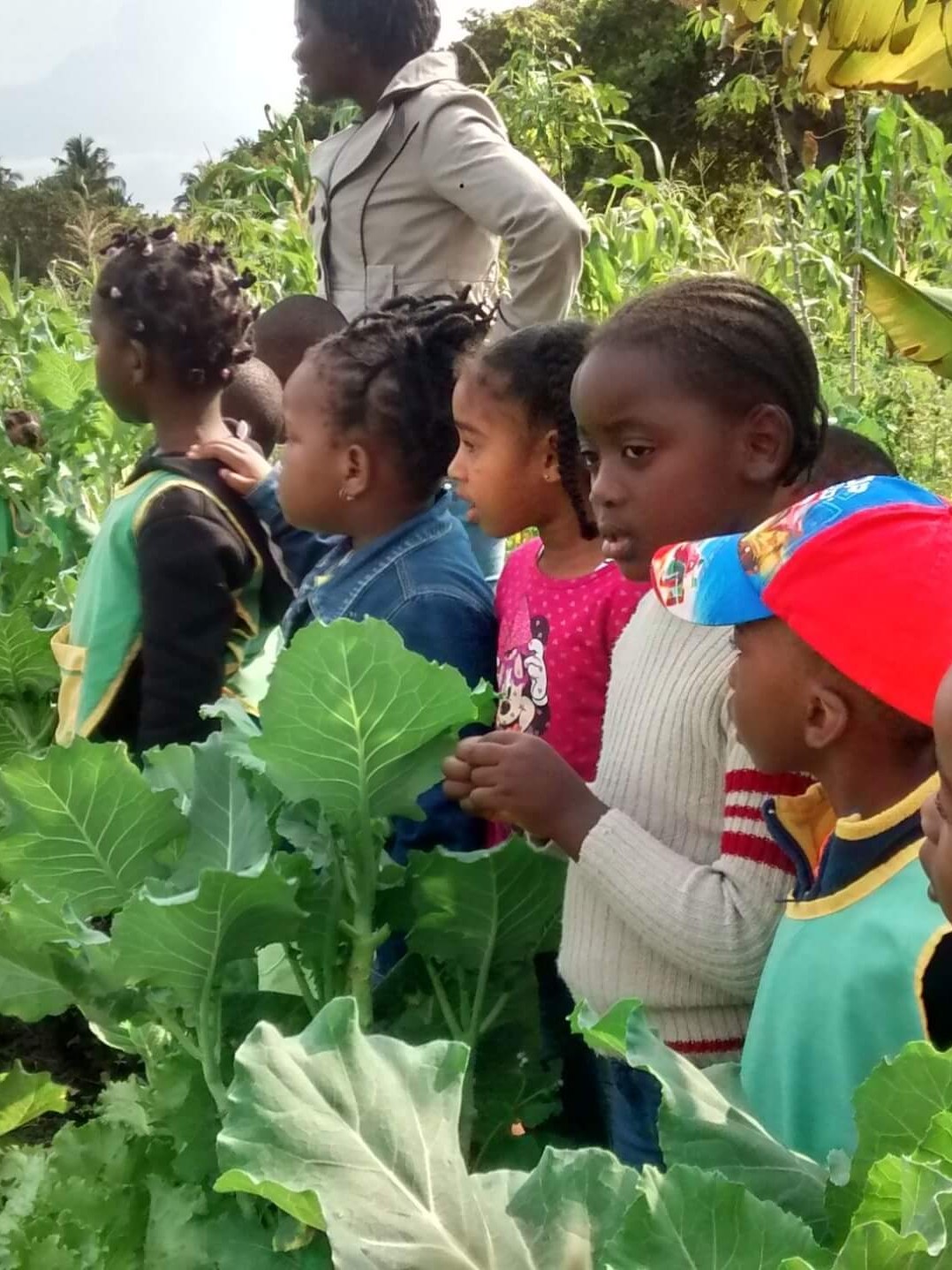
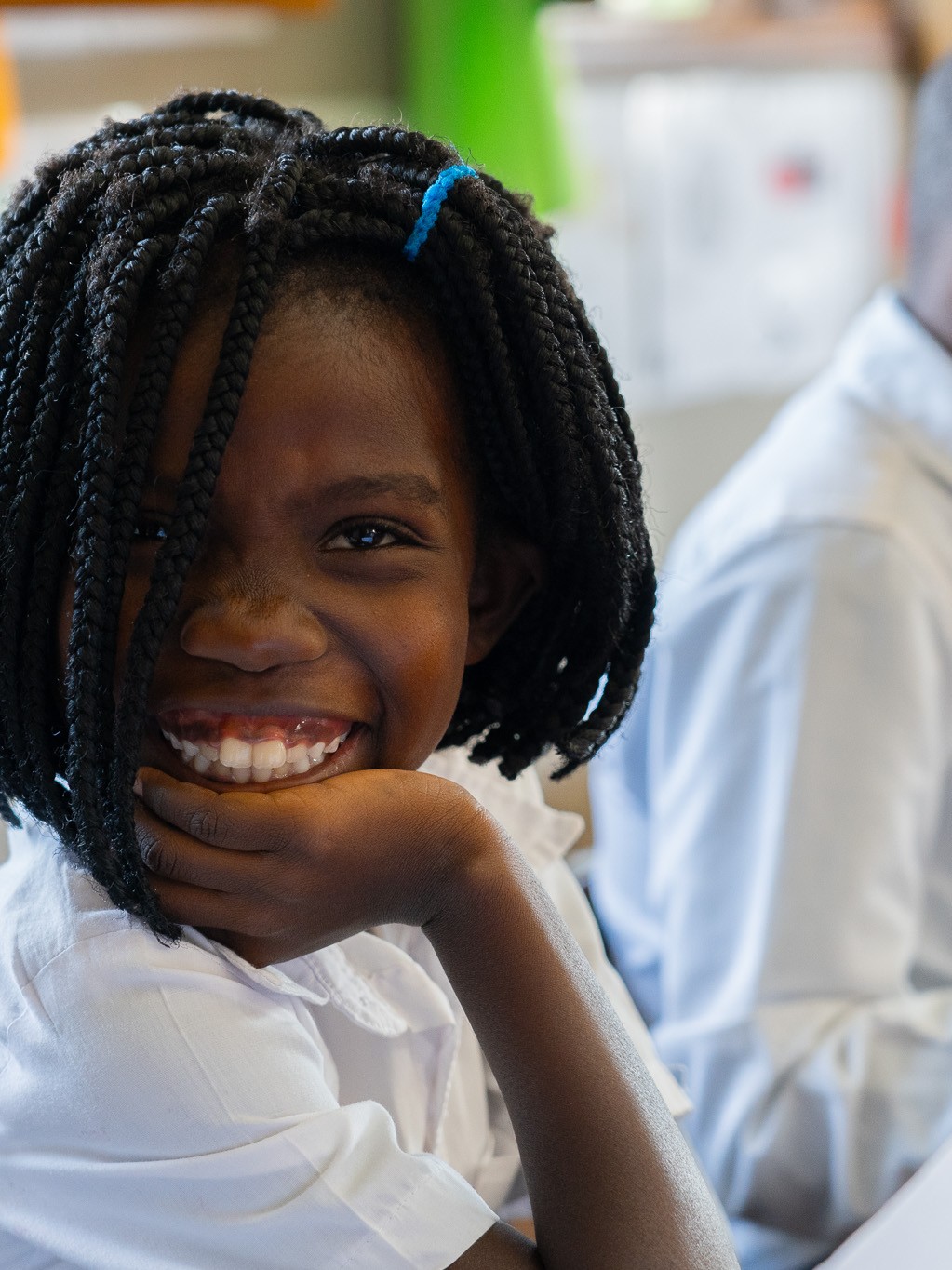
The Nhapúpwè preschool and primary school also serve as a source of inspiration for our partners. Educators and teachers from other institutions come to observe, and decision-makers from various authorities and organizations seek ideas. The school demonstrates how child-centered, inclusive education can be made a reality.
The school plays a central role in our work, as it is the place where our ideas of good educational quality are put into practice. Our goal is for all children, regardless of their social background, cultural heritage, and abilities to enjoy learning and acquire the necessary foundations for their future schooling.
We are proud that our work in the Nhapúpwè preschool and primary school is now well-known throughout the city, and we have long waiting lists due to high demand. We believe that early and comprehensive support for children is the key to their future success, and we will continue to do our best to provide high-quality education for all children in the future
Innovation
To make this possible, we design teaching materials from local resources and create hands-on learning activities and cooperative games. Our approach shows how the national curriculum can be adapted for large classes and simple settings—even lessons held under a mango tree.
All materials and methods are tested and refined in our own preschool and primary school to make sure they are engaging, durable, and easy to use.
Our team brings together educators with diverse backgrounds, including local teachers, special education experts from Nhapúpwè’s support association in Germany, and volunteers from Germany’s Weltwärts program. We value open exchange and meet regularly to share ideas, tackle challenges, and learn from each other. This spirit of collaboration often sparks creative solutions and fresh ideas.
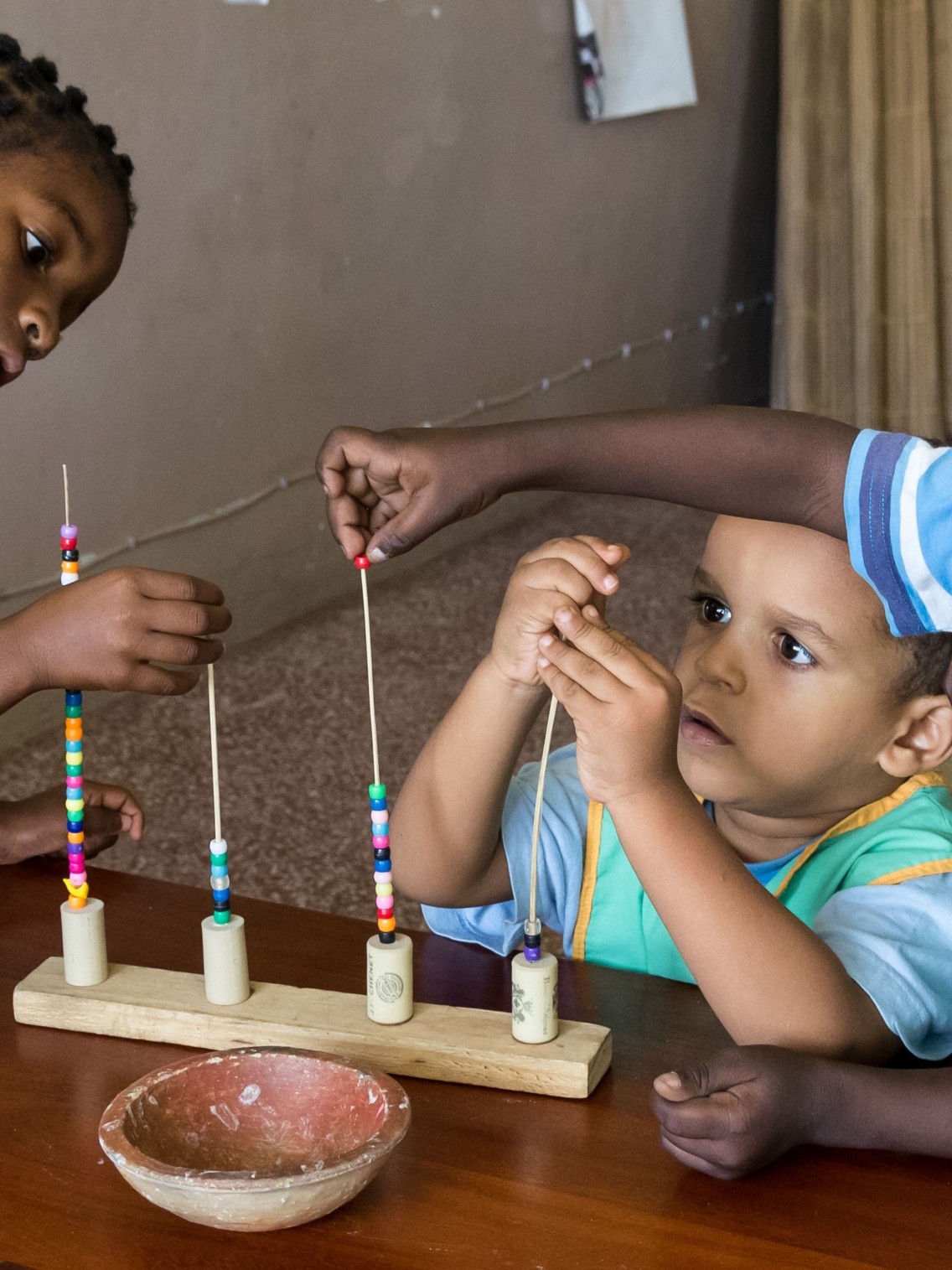
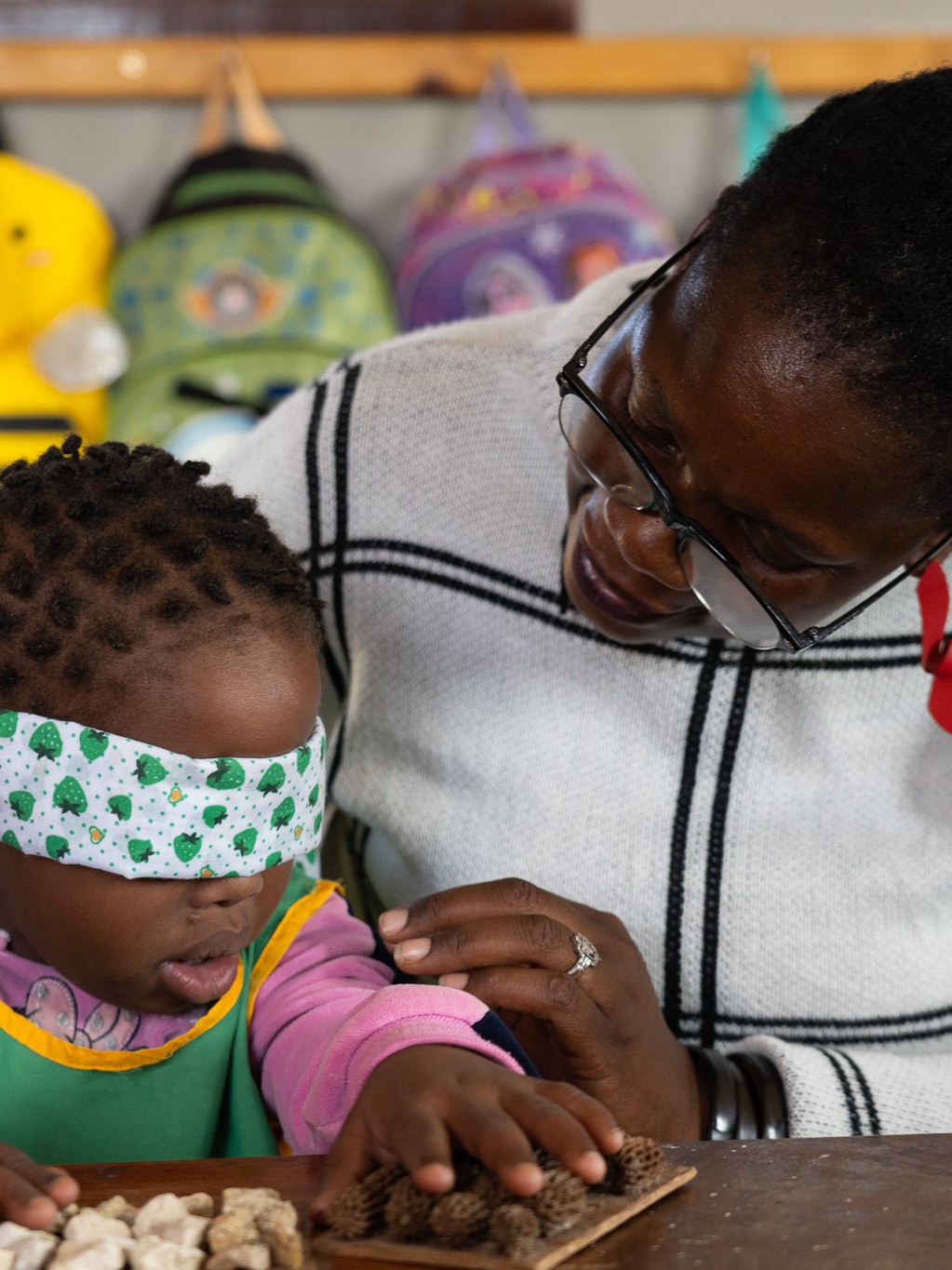
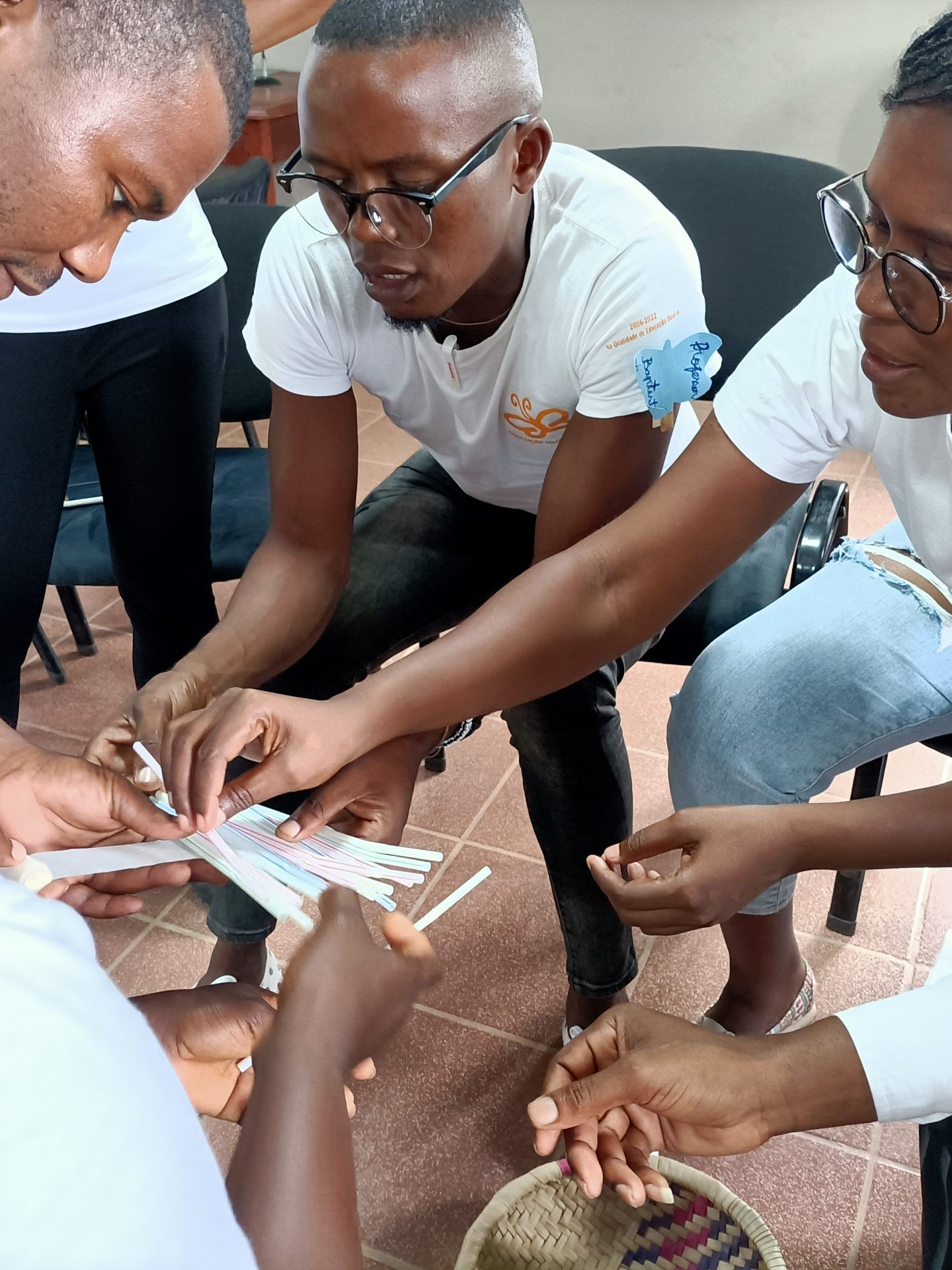
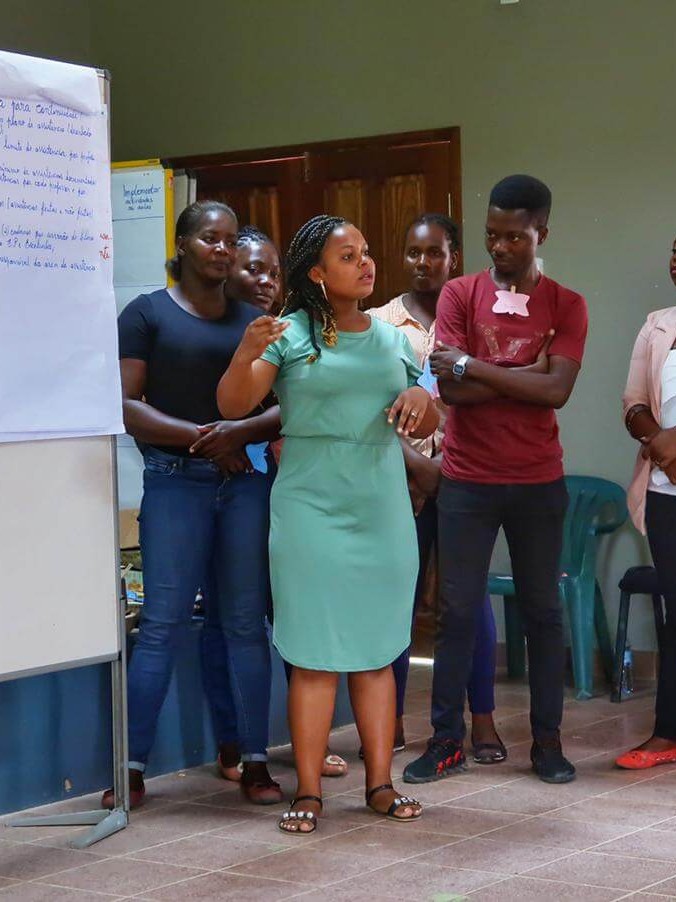
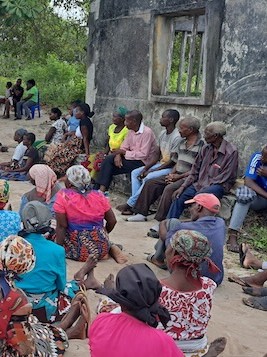
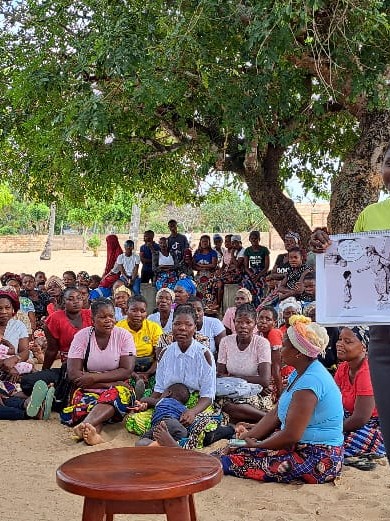
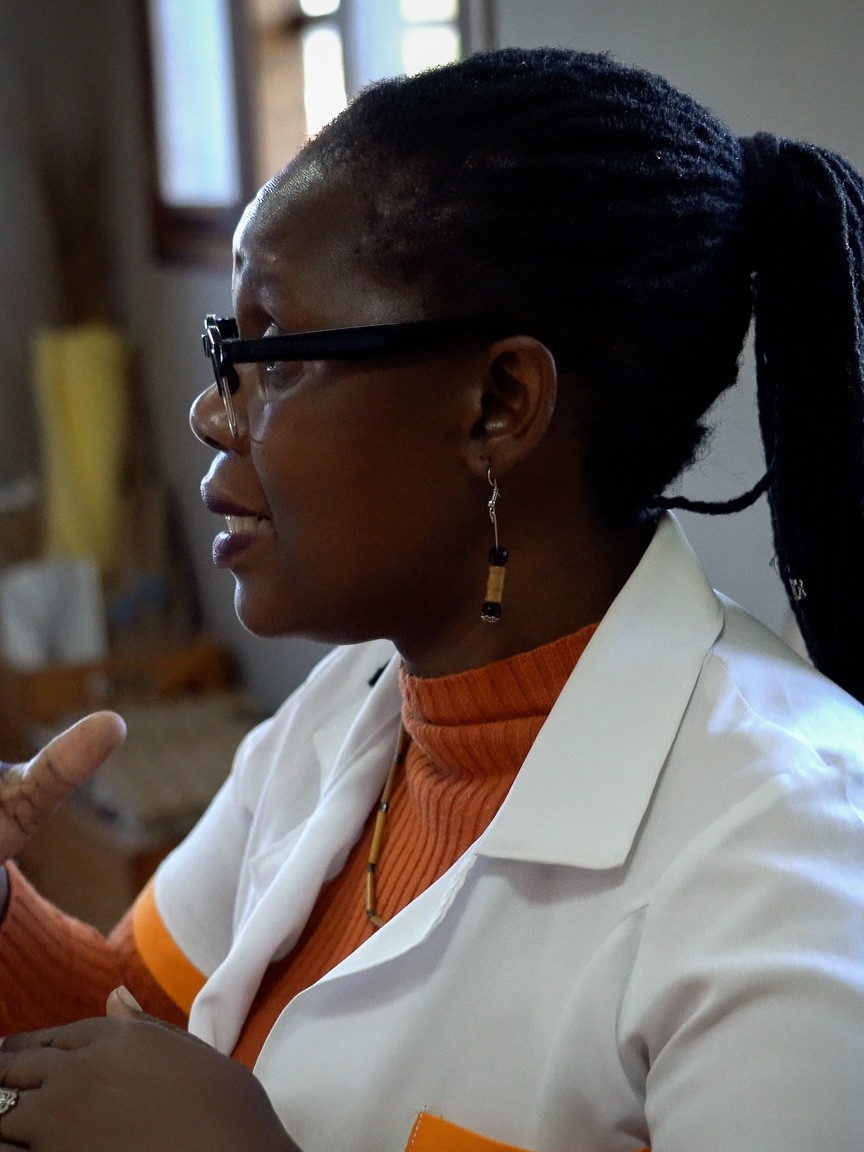
Training, Consultation and Community Work
Nhapúpwè shares its educational approach through training and consulting for preschools, primary schools, training institutes, and government stakeholders. So far, we’ve trained more than 1,000 teachers, educators, and trainers across Mozambique in the basics of child-centered, inclusive education.
Thanks to close collaboration with the government, many of our ideas have found their way into national education programs and policies.
Our training is hands-on and practical, and always tied to real-life classroom situations. Participants observe, role-play, watch short films, and create teaching materials they test together. Our modular topics can be tailored to different needs, covering child-centered education, active learning methods, and making didactic materials from local resources.
Community Work
We also conduct meet ups and events with parents and the broader community, sharing insights and experiences about parenting skills and the benefits of child-centred education. We also create learning materials, guidebooks, and even theatre performances for this important community work.